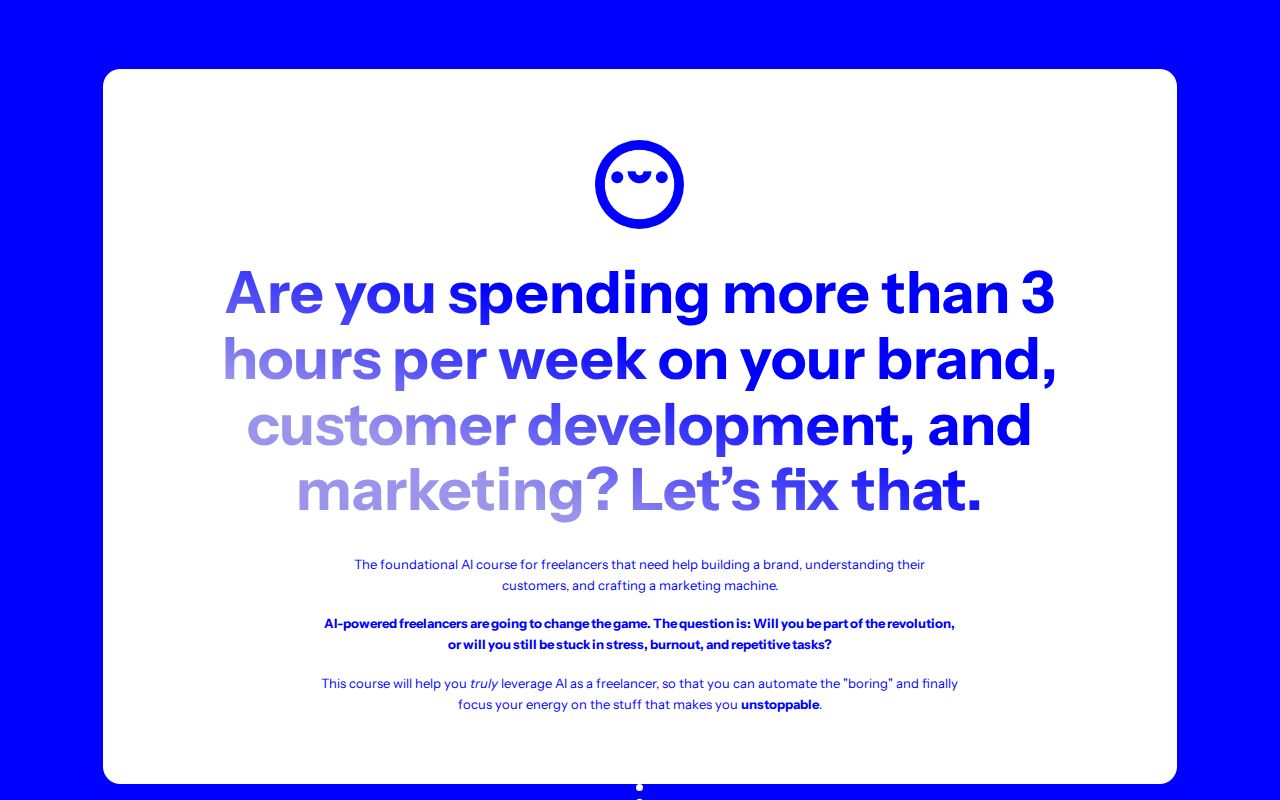We trust strangers every day with our lives.
Every time you get in a car and drive, you're trusting that the people in the cars next to you won’t swerve into your lane. That they’ve passed a driving test. That they’re sober. That they’re paying attention. You don’t stop to verify any of this. You just drive.
We call it "trust," but it's actually survival. You can’t function if you’re second-guessing every driver on the road.
Same thing happens when you buy groceries. You trust that the food is fresh. That it won’t poison you. That someone is checking expiry dates and maintaining the fridge. You trust the supply chain, the standards, the systems.
This kind of trust is invisible. It's constant. And it's what makes modern life even remotely functional.
… which brings me to freelancing.
Freelancers don’t get System Trust
Unlike supermarkets or road laws, there’s no built-in system telling your clients you’re legit. No certification. No government license. No physical storefront. Nothing but your word and your work.
And that’s why trust isn’t just important in freelancing. It is the work.
Referrals? That’s trust.
Repeat clients? Trust.
Someone looks at your portfolio and hires you? Still trust.
Your work is proof, sure. But your reputation is what closes deals.
So let’s dig into what trust actually is, psychologically. And, more importantly, how you can build it on purpose.
The psychology of trust
Trust might feel abstract. But it’s one of the most well-studied and useful tools we’ve got in the freelancer toolbox.
1. Trust is a shortcut (and you can design for that)
When someone trusts you, their brain gets to take a break. No need to micro-manage. No need to understand every detail. They get to move you from the "worry about this" category to the "safe to ignore" pile.
For clients, this is gold.
A client’s job shouldn’t be to manage you – at least from their perspective; it’s to manage outcomes.
If you can reduce their cognitive load, you become valuable. Not because of what you design or write or build. But because of how easy you make it to trust you.
Trust saves your client’s brain from decision fatigue. And that makes you the safest possible bet.
2. Trust = Competence + Warmth
Harvard researcher Amy Cuddy found that when we meet someone, we’re subconsciously scanning for two things:
Do I like you? (warmth)
Can you do the job? (competence)
This is important to really understand. Like, really understand: Clients need both to feel safe hiring you.
Too friendly without clarity? You’ll feel flaky.
Too competent without warmth? You’ll feel cold, rigid.
The best freelancers sit right in the middle. They speak with clarity but also care. They make people feel seen andsupported. They show up like a human who knows their stuff.
Which (spoiler alert) is what the best trust tactics are built to signal.
3. Trust is reciprocal – so start it first
Neuroscience has shown that when people are trusted, their brains release oxytocin. That lovely little hormone that makes us feel safe, cooperative, and, crucially, trustworthy.
That means trust creates trust.
If you treat a client like they’re difficult, they’ll act difficult. If you treat them like a pro, they’ll act like one.
Freelancers who give trust early often get it back, tenfold. It's not always guaranteed. But it is contagious.
Micro-tactics to build trust
Enough theory. Let’s get practical.
These are small, designable moves that build trust invisibly and reliably. None of them are huge. But together, they make you the kind of freelancer people want to come back to.
1. The Micro-Promise Principle
Make one small promise early. Then keep it.
Example: "I’ll send you that article after the call."
Then send it within ten minutes, along with a bonus resource they didn’t ask for.
You’re not just being helpful. You’re training their brain to trust you.
2. The ‘You’re Not Alone’ Nudge
Echo what your client is probably feeling.
Say things like:
"A lot of people feel overwhelmed at this stage of the project."
Or:
"Most clients don’t have this figured out before we start."
This makes them feel understood, which makes them feel safe.
(Note: This is easy to make sound “fake.” So, be careful. It should be intentional, but authentic. Don’t say it if you don’t mean it.)
3. Trust by transparency
Say what you’re not good at.
Example: "This isn’t my strongest area, but I know someone great who can help if we need it."
Being honest about your limits makes everything else you say feel more credible.
4. Calm competence
Speak clearly, with intention. Avoid rambling. Avoid rushing.
Confidence isn’t about being loud. It’s about being grounded. People hear the difference. And they trust the person who sounds like they’ve done this a hundred times before.
5. Consistency over genius
Be the same person in every call, email, and deliverable.
Show up when you say you will. Reply with the tone you set in the first call. Meet the expectations you set. That’s it.
Consistency builds trust faster than brilliance. And it lasts longer too.
Final thought: Trust is the real deliverable
You might think you’re selling logos. Or websites. Or words.
But what you’re really selling is the feeling a client gets when they hand something over to you and know, deep down, they don’t need to worry.
That feeling is worth more than any design.
And the good news?
You can build it.
You can bake it into your process.
You can become the kind of freelancer people trust with their brain space.
Which means you become the kind they hire again. And recommend. And remember.
And that, my friend, is how you build a freelance business that lasts.

